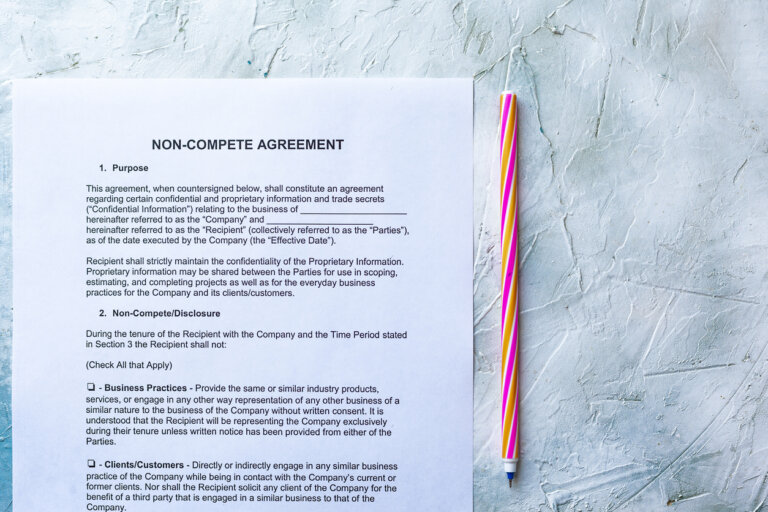Some states either do not allow or have severe restrictions on non-compete agreements, but they are legal in the state of New Jersey, with a few exceptions. An employee’s salary and their particular occupation may limit an employer’s right to issue a non-compete agreement.
In any case, though it may be within an employer’s rights to ask for the agreement, there are a few things you need to know before you sign the contract:
What is the purpose of non-compete agreements?
Non-compete contracts prohibit an employee from directly or indirectly competing with their employer for a specified time after their employment ends.
Each company has its own interests and concerns, of course, but some of the most common prohibitions in a non-compete include the following:
- Recruiting former coworkers into a new business
- Launching a company that provides the same types of services or products as the former employer
- Developing services or products that directly compete with those of the employer
- Working for a company or individual that is in direct competition with the former employer
Other restrictions may be included, depending on the purpose of the company and your position. Some of the most common interests a company may want to protect include their trade secrets, specialized training programs, and relationships with specific clients.
Can the agreement be enforced?
Asking an employee to sign a non-compete contract and enforcing the contract are two different things. Laws that oversee enforceability vary by state and may only be applicable under certain circumstances. A court will consider if a reasonable time limitation has been established and if a non-compete agreement is legitimately needed to protect the employer’s business interests.
If you have concerns, consult with an employment attorney who understands the specific non-compete laws in the state of New Jersey.
What is a reasonable time limit for a non-compete agreement?
A time limit of six months to three years is typically considered to be reasonable for non-compete agreements, with a limit of one year being fairly common. The industry and your career path may influence your employer’s expectations, and contracts with overly long periods are more difficult to enforce.
Should the agreement include geographical limits?
A non-compete contract should define an appropriate geographical limit to be considered valid. Some contracts may define the restriction as a radius around the company’s headquarters or as a limit to specific cities. Broad restrictions, such as the entire state, are difficult to justify and harder to enforce.
Can I negotiate a non-compete contract?
You are not required to sign a non-compete if one is presented to you but do keep in mind that noncompliance could result in losing a job offer or being let go.
Nevertheless, you can attempt to negotiate the terms of a non-compete before signing, and no employee should feel pressured to sign away their rights. Any individual who has questions or concerns about a work-related contract should speak with an employment attorney to protect themselves from exploitation.
What happens if I break the agreement?
The consequences involved with breaking a non-compete can be costly. Your employer could issue a temporary restraining order, you could be prohibited from working, and you may be obligated to pay the legal expenses of your previous employer. If you fail to comply with any decisions handed down by a judge, you could be held in contempt of court and ultimately jailed.
You Can’t Be Forced to Sign, But…
It’s up to you to decide whether signing a non-compete is a deal breaker. Life is unpredictable — you could get a better job offer, decide to relocate, or the company you work for could close — so having your options limited because of a non-compete contract could become a hardship.
The experienced employment attorneys at NJ Employment Lawyers LLC can advise you of your rights and help you make the decision that will best support your present and future needs.

